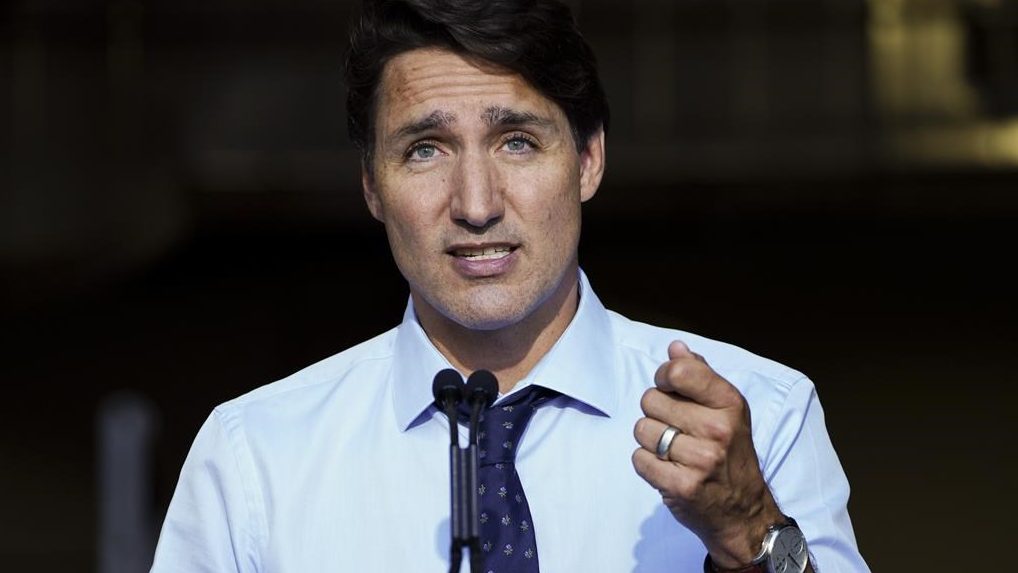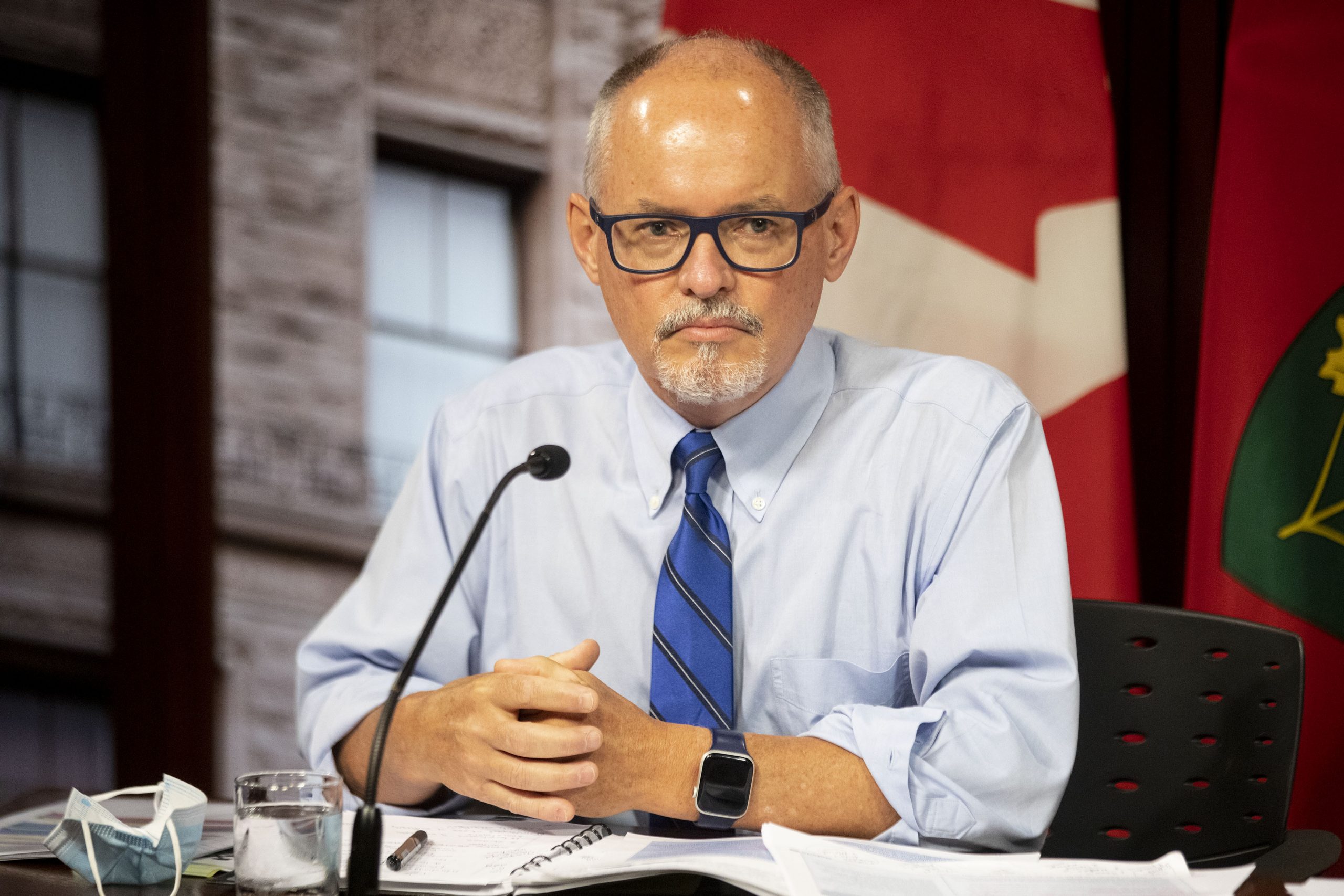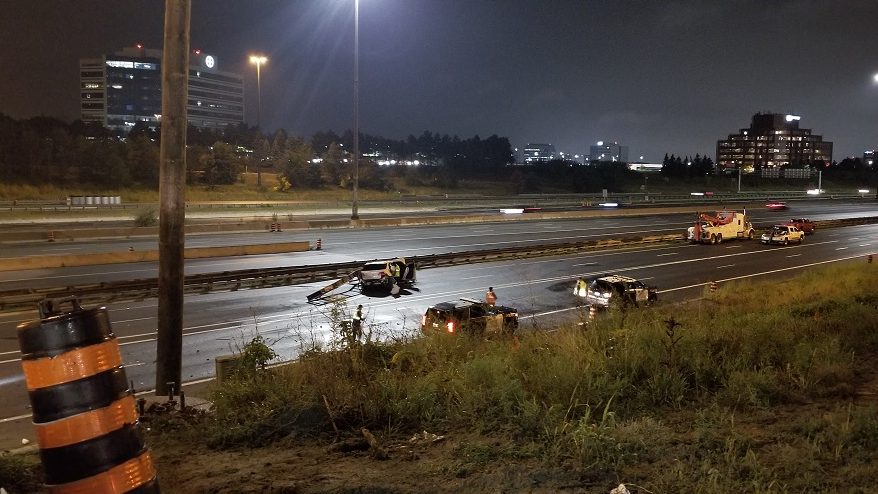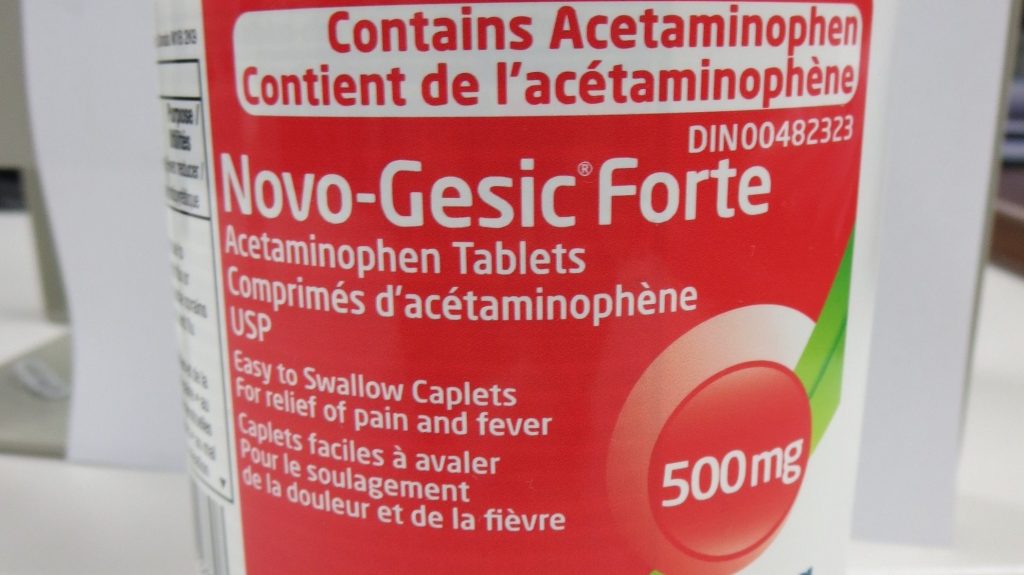Summary
The 500mg tablets were sold in packages containing 1,000 and 100 caplets, and were distributed in Canada starting Aug. 3
Consumers who follow the incorrect directions could ingest doses of acetaminophen ranging 4,500-6,000 mg in 24 hours
To date, Teva Canada Limited has not received any reports of adverse events related to the lots being recalled
Health Canada has issued a recall for two lots of Novo-Gesic Forte Acetaminophen tablets distributed by Teva Canada because of a labelling error that could result in a person exceeding the maximum daily dosage for acetaminophen.
The 500 mg tablets were sold in packages containing 1,000 and 100 caplets, and were distributed in Canada starting Aug. 3, 2021. The affected bottles have an expiration date of June 2023, with the lot numbers 35364729A and 35217483A.
The label on the bottle of affected products incorrectly states “do not take more than 4,000 mg (12 tablets) in 24 hours.” However, the correct number of tablets should be eight.
Health Canada says consumers who follow the incorrect directions could ingest doses of acetaminophen ranging from 4,500 to 6,000 mg in 24 hours and experience symptoms of acetaminophen overdose.
Signs of acetaminophen overdose include nausea, vomiting, lethargy, sweating, loss of appetite and pain in the upper part of the abdomen or stomach. Abdominal pain may be the first sign of liver damage, which can result in liver failure or death.
To date, Teva Canada Limited has not received any reports of adverse events related to the lots being recalled.
Customers are being told to stop using the products, and to contact their local poison control centre or emergency health care services immediately if they think they have taken too much acetaminophen.

The City Of Toronto is taking a zero tolerance approach when it comes to city staff being vaccinated against COVID-19 and has provided an update on its mandatory vaccine policy.
In a statement, the city says staff who do not provide proof of two doses of a COVID-19 vaccine will be suspended for six weeks without pay, starting Nov. 1. If they provide proof during those six weeks, they will be allowed to return to work.
Following the suspension, if staff still do not show proof that they are fully vaccinated, their employment will be terminated on December 13. The termination will be “for cause” because they will have chosen not to comply with the city’s mandatory vaccination policy for staff.
The city says it plans to continue vaccine education programs for staff, including an online training module and vaccination clinics at work locations with lower vaccination rates. To give staff time to take up these programs, those who get their first vaccine dose and provide proof by Oct. 15 will be given until Nov. 15 to get their second dose.
The city released its mandatory vaccine policy for staff on Aug. 26. All city staff were to disclose their vaccination status by Sept. 17 and be partially vaccinated by Sept. 30.
The city says 95 per cent of its staff has completed the vaccination disclosure form and as of Wednesday, 26,138 Toronto Public Service members are fully vaccinated. That number represents 89 per cent of staff who disclosed their vaccination status. Five per cent of staff are partially vaccinated and 2 per cent have chosen not to disclose their status.
Mayor John Tory says the majority of city staff are fully vaccinated and the policy is focused on protecting the health and safety of all employees.
“I look forward to more staff joining their colleagues in becoming fully vaccinated in the coming weeks so that all of our workplaces are as safe as possible during the ongoing fourth wave and as our city reopens,” he said in a statement.

The City of Toronto is rolling out several mobile COVID-19 vaccine clinics in an effort to boost immunization rates over the Thanksgiving weekend.
At least 18 “Vaxgiving” clinics will be running at malls, transit stations, schools, churches, libraries and other locations.
Mayor John Tory says the clinics, which opened Wednesday, are in areas where vaccination rates are lower than the city’s average.
Toronto is working to reach a goal of having 90 per cent of its eligible population vaccinated — 81 per cent of eligible residents currently have two shots.
The city’s top doctor says anyone who gets their first shot over the Thanksgiving weekend will be able to get fully vaccinated in time for the December holiday season.
Dr. Eileen de Villa also says those planning to gather over the long weekend should consider the vaccination status of people they are with, particularly if the group includes anyone vulnerable to the virus.
She says gathering exclusively with individuals who are vaccinated “is the safest” approach. De Villa also says gathering outdoors can reduce risk if a group includes unvaccinated people.
“To be able to gather in person with the confidence, with a superior level of protection against COVID, is something you simply have to experience yourself,” de Villa said as she encouraged those who’ve yet to be vaccinated to do so.
Toronto has seen “some stability” in COVID-19 case counts over the course of the last few weeks, but de Villa cautioned that it’s too soon to be “over excited” since the full impact of schools resuming and people moving around more has yet to be seen.
Tory said the city needs to continue its push to vaccinate as many residents as possible.
“We are in fact making progress,” he said. “But it’s the kind that requires great perseverance.”

Summary
The policy would mean mandatory vaccinations for employees in federally regulated workplaces
That will include mandatory vaccinations for anyone wanting to board a plane or a train in Canada
The policy is expected to go into effect by the end of this month
Prime Minister Justin Trudeau will make good Wednesday on his election promise to require all federal employees to be fully vaccinated against COVID-19.
Trudeau is expected to announce at a news conference this morning a new policy of mandatory vaccinations for employees in federally regulated workplaces.
That will include mandatory vaccinations for anyone wanting to board a plane or a train in Canada.
The policy is expected to go into effect by the end of this month.
Trudeau promised in August, just before calling the election, that his Liberal government would make vaccinations mandatory for federal employees.
Since then, Treasury Board officials have been working out the details — including the consequences for workers who refuse to get vaccinated — in consultation with the affected unions.
On Tuesday, an executive of one of the unions said a draft policy that’s been circulated would require even federal employees who work from home to be fully vaccinated if they want to keep their jobs.
Stephane Aubry, vice-president of the Professional Institute of the Public Service of Canada, said the government appears to be leaning toward making vaccination “a condition of employment” that would apply to everyone, regardless of where they work.
The policy is expected to allow only for very narrow medical exceptions.
Trudeau’s government is also working with provinces on producing a federal proof of vaccination certificate, or passport, but that is not expected to be part of today’s announcement.
Federal officials say a national vaccine passport that could be used for international travel can’t be created unilaterally by Ottawa because all health data in Canada is compiled and stored by the provinces and territories.
Mandatory vaccination became a pivotal wedge issue during last month’s election campaign.
Although personally supportive of vaccines, Conservative Leader Erin O’Toole was the only major party leader to oppose making them mandatory, arguing that individuals’ personal health decisions must be respected.
Trudeau cast the issue as a matter of showing federal leadership, reinforcing the need for everyone to get vaccinated to protect themselves, their families and their communities.
He was dogged throughout the campaign by extreme, profanity-spewing, anti-vaccination protesters and supporters of the People’s Party of Canada, which capitalized on the anti-vaccine movement to boost its share of the popular vote to almost five per cent.

An Ontario judge is expected to deliver a verdict today in the trial of a Toronto teacher accused in the drowning of a 15-year-old student during a school canoe trip.
Nicholas Mills oversaw the July 2017 trip to Algonquin Provincial Park during which Jeremiah Perry drowned.
Mills, a teacher at C.W. Jefferys Collegiate Institute, has pleaded not guilty to criminal negligence causing death.
Prosecutors have alleged Mills ignored safety rules in planning and carrying out the multi-day excursion, and allowed Perry — who they argued could not swim — to go in the water without a life-jacket.
Defence lawyers, meanwhile, have said the Crown has failed to prove beyond a reasonable doubt that Perry couldn’t swim, which they said is necessary to establish negligence.
They have also argued Mills shouldn’t be held to a higher standard than the “average parent” conducting a similar trip.
Mills took the stand in his own defence during the trial and acknowledged he did not follow some rules imposed by the Toronto District School Board because he believed them to be impractical or unnecessary. Some of the measures would have made it impossible to carry out the trip at all, he told a virtual court.
The teacher maintained, however, that the safety requirements he imposed went beyond what’s commonly done in the private sector.
The Crown has alleged Mills bypassed some rules because he felt he “knew better.”
Court has heard the trip was part of an ongoing program for underserved youth, and that students were required to pass a swimming test in order to participate.
Perry failed the test, as did nearly half of the students who took part in the excursion, the court has heard. Several students also wore life-jackets during the assessment, which was against the regulations established for overnight canoe trips.
Students who failed the test were supposed to be given swimming lessons and take part in a second assessment, court heard. Those who failed a second time were to be offered an alternate outing.
The defence has alleged the school knew the test was amended to allow life-jackets, despite testimony from the school’s principal, who denied that was the case.
Mills also testified he believed Perry had passed the mandatory swim test, saying he saw what he thought was a “P” for “pass” next to the teen’s name when he “scanned” the test results.
Perry disappeared in the water at Big Trout Lake on July 4, 2017, and his body was recovered the next day by police divers.

Even federal employees who work from home will have to be vaccinated to keep their jobs if the government’s draft mandatory-vaccine policy stands, according to one union executive.
Stephane Aubry, vice-president of the Professional Institute of the Public Service of Canada (PIPSC), says the draft, as well as other communication between unions and the government, suggests that the Treasury Board is leaning toward making vaccination a condition of employment.
He says that would mean workers would need to be fully vaccinated, even if they work from home or outside of the country.
Prime Minister Justin Trudeau promised in August, just before calling an election, that his government would make vaccinations mandatory in federally regulated workplaces, including for anyone boarding a plane or train.
Since then, Treasury Board officials have been working out the details, in consultation with the affected unions.
Trudeau is scheduled to make an announcement about vaccines on Wednesday.
RELATED: Trudeau says moving on vaccine mandate for federal workers, travellers priority No. 1
PIPSC represents 60,000 members, mainly scientists and professionals employed by the federal government, as well as some provincial and territorial workers.
“If it was more based on the type of work, then it could have been more granular and be more specific to those that are front-line workers, that are requested to go back to the office,” Aubry said in an interview Tuesday.
“Making it a condition of employment would apply to everybody, independent of where they are physically working from.”
The Canadian Press has not seen the draft policy or verified its contents.
In a statement Tuesday, the Treasury Board of Canada Secretariat would only say that officials have been working on plans to implement the requirement for vaccines across the public service and engaging with bargaining agents and other stakeholders.
The government announced its intention to mandate vaccines for the federal workforce on Aug. 13.
After the election, Trudeau said it would be a priority of his re-elected Liberal government.
“The public service and the unions have been working on that over the past number of weeks,” Trudeau said at a press conference on Sept. 28.
The final policy will be subject to government approval.
Aubry said unions are pushing to find out what kind of accommodations could be made for unvaccinated workers, particularly those who cannot receive a shot for COVID-19.
They also want to know what will happen to those who choose not to comply.
“Disciplinary loss of salary, loss of jobs, we’re concerned it could go that way,” he said. “And for those that have a reason, how will they provide those reasons that they cannot be vaccinated?”
Simply making COVID-19 vaccines a condition of employment would not cover contractors or visitors in federal workplaces either, he said.
Several unions have raised concerns about how the government intends to verify employee vaccine status, and Aubry said he also wants to know how that confidential health information will be stored.
“It would not be the only organization that does capture private information, so we expect that they will have procedures behind that,” he said.
Public-service unions have been allowed to provide feedback on the draft and a final version is expected soon.
All bargaining agents can do for now is advocate on behalf of their members while the government finesses the final draft. Only after the policy is finalized can the unions file a grievance if they don’t feel their workers are fairly treated.

Summary
The Canadian Medical Association and the Canadian Nurses Association held an emergency summit
The organizations are particularly concerned about growing surgical backlogs
The well-being of health workers is also top of mind
More than 30 national and provincial health organizations are trying to decide which of the devastating effects COVID-19 has taken on Canadian health care to tackle first, as they work to steer the country out of crisis.
The Canadian Medical Association and the Canadian Nurses Association held an emergency summit Tuesday night to discuss how to move forward since the pandemic brought the health system to a breaking point, with no end in sight.
The organizations are particularly concerned about growing surgical backlogs and the effect that will have on patients’ quality of life for the years to come.
The well-being of health workers is also top of mind, as they report feeling exhausted, demoralized and short-staffed for 18 months straight.
CMA President Dr. Katharine Smart is expected to brief reporters about the meeting Wednesday morning.
The CMA and other organizations are already working together to lobby the government to create a national health workforce agency to better plan for the future of health human resources, said Linda Silas, president of the Canadian Federation of Nurses.
The CFN wants to see the summit continue to focus their advocacy on the health workers shortage, which has been exacerbated by exhausted nurses and other workers leaving the industry entirely.
Silas said nurses are feeling overstretched and overwhelmed and it’s affecting the level of care they can give their patients.
“The guilt is weighing on their shoulders so much and they feel heavy all the time because of not being able to do their job appropriately,” she said.
She said the summit is not only concerned with hospital issues like surgical backlogs and overcrowded ICU beds, but also on the impact the pandemic has had on long-term care and home care.
Stressing about Thanksgiving prep? Chef Randy Feltis has a selection of meat-free recipes that are bound to make a believer out of even the biggest meat lover!
Plant-Based Shepherds Pie
Serves 6-8
Prep time 17 minutes
Bake time 50 minutes
Special tools 9×9 baking pan
Ingredients
- 1/4 cup PC Plant Based Butter Alternative Salted
- 1 medium diced yellow onion
- 1 lb PC Plant Based Beefless Ground
- 2 cloves garlic
- 1 tablespoon chopped fresh parsley
- 1 teaspoon chopped rosemary
- 1 teaspoon fresh thyme
- 2 tablespoons flour
- 1/4 cup red wine
- 2 tablespoons tomato paste
- 1.5 cups frozen veggies (peas, corn, carrots)
- 1.5 lb mashed potatoes with extra PC Plant Based Butter Alternative Salted
Method
- Preheat oven to 400 degrees F
- In a medium cast iron pan, sauté onions and garlic in butter. Add ground beef and herbs, when browning starts add flour and tomato paste. Deglaze with wine and add veggies. Cook the liquid out a little bit keep the mixture wet but not too loose.
- Transfer to baking dish and top with mash potatoes. Bake for 50 minutes or until golden.
Plant Based Sausage Stuffing
Serves 6-8
Prep time 15 minutes
Bake time 60 minutes
Special tools 9-13 inch baking dish
Ingredients
- 7 cups sourdough cubes
- 1/2 cup PC Plant Based Butter Alternative Salted
- 1 medium onion diced
- 400g PC Plant Based Sweet Italian Sausage casing removed and pinched into medium bits
- 4 cloves garlic
- 3 stocks celery diced
- .5 cup white wine
- 2.5 cups veggie stock
- 1 tablespoon fresh sage chopped
- 1 tablespoon fresh parsley chopped
- 1 tablespoon fresh rosemary chopped
- 1/2 teaspoons kosher salt
- 1/2 teaspoons black pepper
Method
- In a large sauté pan, melt butter and gently cook celery, onions and garlic. Once softened add breadcrumbs to a large mixing bowl and pour overtop.
- In the same pan sauté sausage, once browned deglaze with wine and toss into bread mixture.
- Add remaining stock, herbs and season.
- Grease up your baking dish and top with stuffing. Bake at 350 for 60 minutes uncovered or until top is golden brown.
Schwartz’s Potato Hash Plant Based
Serves 8-10
Prep time 10 minutes
Cook time 70 minutes
Special tools 9×13 inch baking dish
Ingredients
- 2 lb diced cooked potatoes
- 2 cups PC Plant Based Sour Cream Alternative
- 1/4 cup PC Plant Based Butter Alternative Salted
- 1 tin cream of mushroom soup
- 1 bottle PC Plant Based Ranch Dressing
- 2 cups Plant based cheese
Method
- Preheat oven to 350 degrees
- Grease baking dish with butter, mix up potatoes, sour cream, mushroom soup and ranch dressing.
- Transfer into baking dish and top with cheese.
- Bake for 70 minutes or until crispy on top.
- Serve with a smile
Plant Based Breakfast
Serves 4-8
Prep time 4 minutes
Ingredients
- 1 tub PC Plant Based Cultured Oat Yogurt Alternative Yuzu Citrus Flavour
- 1 pint blueberries
- 1 cup granola
- 2 tablespoons mint leaves torn
- 16 twists black pepper
- 1/4 cup maple syrup
- Portion yogurt into a bowl, top with granola, blueberries, mint and maple syrup.
- Add a couple twists of black pepper.

Ontario is rolling out a rapid COVID-19 testing program for schools in areas of the province with high transmission.
Dr. Kieran Moore, the province’s chief medical officer of health, said Tuesday rapid tests will be made available as determined by local medical officers of health. Parents will be able to choose if their children participate in the screening.
“This will help identify and prevent transmission in schools and licensed child-care settings, as identified by local medical officers of health based on local epidemiological circumstances,” the province said.
The rapid tests will be used only for unvaccinated students with no symptoms who are not high-risk contacts of a case.
If a child receives a positive result, they will still need to get a lab-based PCR test to confirm.
“Routine rapid antigen screening of fully vaccinated individuals and children is not currently recommended given the effectiveness of the COVID-19 vaccines as well as the risks posed to the disruption of learning as a result of false positives,” Moore said in a release.
The announcement comes after groups of parents had organized surveillance testing for their schools using the rapid test kits, but the government told agencies to stop distributing them to anyone but businesses.
Below is the procedure and criteria for the COVID-19 rapid antigen screening for child-care and school age children (as provided by the province):
- Based on the guidance of the Chief Medical Officer of Health, local Medical Officers of Health will continue to monitor local COVID-19 transmission and vaccination rates to identify when to implement rapid antigen screening in parts of their region based on local factors and needs.
- Rapid antigen screening will be used only for unvaccinated asymptomatic students and children who are not high-risk contacts. Symptomatic or high-risk contacts should continue to access lab-based PCR testing available at assessment centres and other collection centres.
- Where the local public health unit has identified schools or child care centres that would benefit from this screening, rapid antigen screening tests will be made available. Parents will be able to choose if their unvaccinated asymptomatic children will participate in this screening offered by their schools or licensed child care settings.
- Unvaccinated children participating in the program will be able to conduct the rapid antigen screening at home with instructions.
- Children who receive a positive result will be required to seek a confirmatory lab-based PCR test at a local assessment centre or specimen collection centre and isolate until the result of that lab-based PCR test is known. Children who receive a negative result on a rapid antigen screening test will be able to continue in-person learning. More detailed information including duration and frequency will follow.
More to come

A man is in hospital after he was struck by a vehicle on Highway 401 while trying to help following a crash in the area.
It happened around 1 a.m. Tuesday on the westbound lanes of the highway near the Renforth bridge.
The man was rushed to hospital with serious but not life-threatening injuries.
Provincial police said a vehicle with three people inside stopped to help after a tractor-trailer jack-knifed on the westbound lanes of the 401 at Highway 427.
An oncoming SUV then hit the truck. It appears the truck then struck one of the people who stopped to help.









